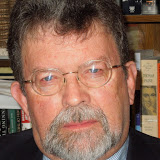Thoughtful Americans, however, might have expected more from Senator Clinton. A political elite herself - a Senator and wife of a former President, whose joint tax return reported $109.2 million in income over seven years - Clinton had no such grand theft or divide and conquer motives for criticizing Obama's elitism, just shameful political opportunism.
Presumably, she is smart enough to know the damage done to the United States when ordinary men of commerce refused to allow themselves to be led by eighteenth century gentlemen. And, presumably, she realizes that virtually every American, today, aspires to be an elite in something or other.
As one who has been greatly influenced by the writings of conservative historian, Jacques Barzun - especially his warnings against "the menace of the untaught - the menace to themselves and to us" - it seems appropriate here to mention a few of his observations about America's elites.
"There are in the United States at least 57 elites, and they are not playing their part: they are not ruining the country. They should be undermining our democratic way of life as predicted by the horrified who shout 'Elitism!' But apparently the bugbear has no teeth: it is only a menace; it does no more than keep the watchdogs hoarse.
Probably the rest of us do not quite know what elites and elitism are. To find out, let us take a look at those fifty-seven. At the top are the athletes, the pop singers, and the movie stars, who occupy most of the news alongside wars and economic crises. These men and women are so few in number that their names, nicknames, marital affairs, and salaries are known to all, their health and deeds a matter of daily concern.
Next come the notables who broadcast the news, also daily intimates, and so sure of their place in our hearts that they are called anchors. Close in importance are the famed dress designers, whose slightest whim affects half the population, and after them the leading politicians. Their influence is hard to prove, though their words can cause intense excitement. Then there are a few of the wealthy on the Fortune roster, who for one reason or another are movers and shakers outside the market…
Beyond this point, steady elites are either local or professional, and though conspicuous in their domain, hardly known to the general public; for example, the members of the National Academy of Sciences and the soldiers of a named corps such as the Green Berets. No need to list them here. The foregoing are enough to define the character of an elite. What is it?
It consists of a relatively small group of persons who get singled out and thereby take or are given some sort of privilege." Noting that only "a licensed electrician may install wiring," and "Indians in Vermont may fish without a license," Barzun concludes, "The country is a mass of elites."
Which prompts him to ask: "Why then the outcry against elitism?" To which he answers: "One thing only - that an elite member will make us feel inferior with respect to a talent which we have." [Barzun, Begin Here, pp. 203-204]
In American politics, that "talent" is the vote. Which is why William Safire was correct to observe that it's political suicide for a candidate "to make people think you are smarter than they are." Safire's axiom explains why Barack Obama's so-called elitism is the object of such great attention from people possessing less than noble motives. They are attempting to assist his political suicide - notwithstanding the damage caused to America by such an earlier assault and notwithstanding the near universal aspiration by Americans to become a member of some elite, themselves.
(Note: You can view every article as one long page if you sign up as an Advocate Member, or higher).





